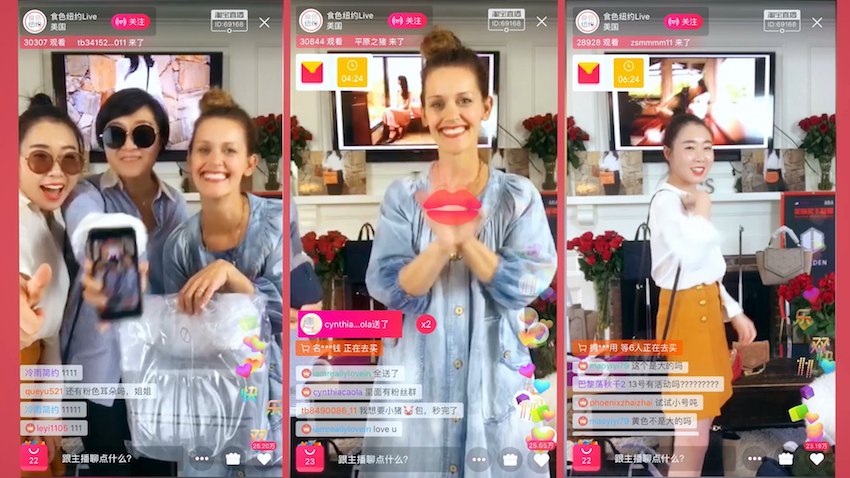
What can executives at some of the world’s most important consumer-packaged-goods companies learn from a four-year-old handbag brand Welden?
Quite a lot, in fact. Especially when it comes to New Retail, which merges online and offline commerce and leverages new technologies to help brands better engage with consumers.
Welden co-founder Sandy Friesen and AndLuxe.co head Mark Yuan, who helps international brands sell on Alibaba Group’s behemoth shopping site Taobao, recently schooled just such a group at a special panel discussion at Harvard University.
The topic, reaching consumers in the digital era, is one that Welden knows well. With help from Yuan, the company made its first foray into China in late 2017, kicking things off with a livestreamed event on Taobao from Friesen’s home in Connecticut. Welden brought in nearly $300,000 in gross merchandise volume over two days, selling close to 1,000 bags and drawing 1.7 million views. For Welden, it was a lesson in how traditional strategies for marketing and consumer outreach simply don’t work anymore, especially in China.
Watch: US Entrepreneur Builds Brand in China from Her Home
“Retail is not dying,” Friesen told Alizila in 2018, “but it’s changing.”
To explain the phenomenon to the gathering at Harvard, which was hosted by Harvard Business School Executive-in-Residence Daniel O’Connor, Friesen and Yuan livestreamed their talk on Taobao’s livestreaming service, Taobao Live. (Yuan told the executives that Taobao was “Facebook Live plus QVC plus Etsy all in one app.”) The session instantly attracted thousands of viewers, the pair said, as Welden fans tuned in to find out what the company was doing at Harvard, a prestigious university that many Chinese students aspire to.
Not long after Friesen started showing of one of Welden’s new mini-hexagon backpacks, viewers started placing deposits for the yet-to-be-released bags. Meanwhile, Yuan urged viewers to send “I love Harvard” messages to win Harvard-branded merchandise. Hundreds of viewers did so – in Chinese – within seconds. The executives in the audience were so intrigued by the instant connection, Friesen and Yuan said, they started to chat with Chinese consumers as well.
WATCH: Welden Livestreams from Harvard*
“When I saw this demo, I thought this is reinventing commerce in a revolutionary way similar to the first time people shopped via e-commerce,” O’Connor said. “Every consumer company in the world is thinking about go-to market strategies at the moment. They have a lot to learn from platforms like Taobao, which is providing a frictionless way for anyone to become an entrepreneur and to reach a large audience instantaneously.”
During a Q&A with the executives, Friesen explained how Alibaba’s e-commerce infrastructure made it possible for Welden to reach its customers and build relationships with them in a highly effective way, which helped to build its brand in China. Moreover, tools such as livestreaming allowed for instant feedback from those customers. Previously, designers had to guess what consumers might want months ahead of the season or rely on costly focus groups for consumer research. Now, real-time engagement with Chinese consumers allows her to tailor new products to their liking, down to details as small as the strap length of a bag and making red more available as a color choice to suit to meet demand in China.
Following its success its China, Welden expanded to Japan. Now, 20% of its business is generated outside of the U.S. The takeaways from Welden’s growth from Connecticut startup to international brand are as relevant to large companies as they are to small businesses.
“Every global consumer company has a lot to learn from China in terms of using innovative ways to reach the consumer,” O’Connor said.
* Harvard University did not sponsor the Welden event. The merchandise offered during the livestreaming session was purchased by Yuan.




